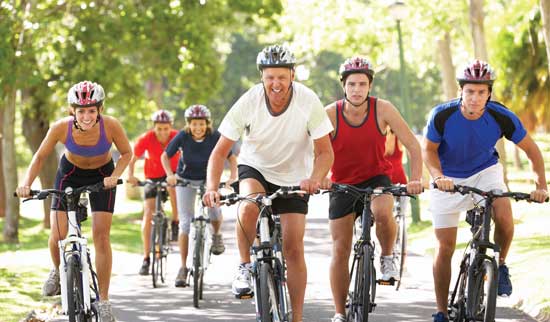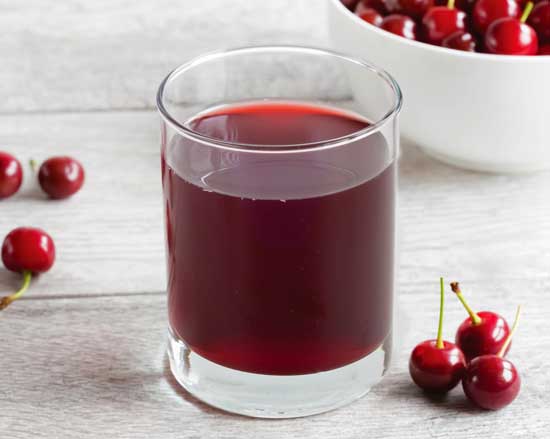Preserving and Protecting Joint Health
NUTRACEUTICALS
 The market for products that support joint health has expanded beyond those suffering from arthritis and age-related joint pains to include the sports nutrition demographic. Weekend warriors, sports and fitness enthusiasts, and dedicated athletes are all now looking to joint health supplements to reduce the toll that exercise can take on their joints.
The market for products that support joint health has expanded beyond those suffering from arthritis and age-related joint pains to include the sports nutrition demographic. Weekend warriors, sports and fitness enthusiasts, and dedicated athletes are all now looking to joint health supplements to reduce the toll that exercise can take on their joints.
Ingredients and supplements such as glucosamine and chondroitin sulfate are commonly found in joint health products. But as the demand for more wholesome, all-natural foods continues to grow, the door is open for more remedies.
Take, for example, the popularity of bone broth. Earlier this year at Natural Products Expo West, there were several bone broth products being promoted for their reported effects on overall wellness, including joint health. Bone broth is made from bones and marrow that are boiled and simmered over a period of days. Consumers of bone broth believe the simmering causes the bones and ligaments to release beneficial compounds, including amino acids and collagen.
One product, Brew-It-Yourself Bone Broth, from BIY Bone Broth, San Jose, Calif. (biybonebroth.com), is said to support overall health and wellness by strengthening bones, joints, tendons, and cartilage, in addition to providing healthy fats and nutrients for the brain and body. The bones used in BIY Bone Broth are from grass-fed, free-range, or pastured cattle; the bones are precut and prebaked, then dehydrated. The consumer adds one gallon of water to the kit and brews overnight in a slow cooker. The company recommends drinking one mug (approximately 7 oz) of bone broth daily for general health.
At SupplySide West this past October, there were plenty of ingredients and supplements that offered joint health benefits. Here is a look at some of these products as well as some ingredients that consumers are turning to for healthier, less painful joints. While some boast anti-inflammatory properties, others are reported to help build/maintain cartilage.
 Glucosamine, Chondroitin Sulfate, MSM
Glucosamine, Chondroitin Sulfate, MSM
Glucosamine is a popular joint health ingredient and a component of cartilage. Cartilage and synovial fluid are continuously being regenerated or repaired to keep up with the physical demands of daily living. In addition to being a primary component of cartilage, glucosamine may also protect and maintain the cells responsible for the production of cartilage and synovial fluid (Cargill 2011).
Most glucosamine is produced from shellfish. Cargill, Minneapolis (cargill.com), offers a vegetarian-sourced glucosamine, Regenasure. “Cargill’s Regenasure glucosamine is unique because our product is the only North American–produced, vegetarian glucosamine. We source all of the raw materials in the U.S. and complete the production process in the U.S., unlike other imported glucosamine products,” says Mike Fleagle, brand manager, Regenasure glucosamine.
In 2012, Cargill supported research at The Scripps Research Institute on glucosamine’s role in preserving cartilage and joint health. Preliminary findings indicated that glucosamine may help to support healthy aging in the joints through the activation of autophagy, a critical mechanism in maintaining cellular health in joints and other tissues throughout the body (Caramés et al., 2012).
Chondroitin sulfate is found in cartilage around the joints. When taken as a supplement, it is believed to help slow the breakdown of cartilage and relieve joint pain. In a 28-day study of 18 healthy, overweight men and women, Navarro et al. (2015) showed that 1500 mg/day of glucosamine hydrochloride plus 1200 mg/day of chondroitin sulfate may lower systemic inflammation and alter other pathways. The serum inflammatory biomarker C-reactive protein concentrations were 23% lower after glucosamine and chondroitin, compared to placebo.
MSM (methylsulfonylmethane) is made up of 34% sulfur, an important nutrient for the maintenance of healthy joints, tendons, ligaments, and other connective tissue. It has been shown to reduce pain associated with osteoarthritis and has anti-inflammatory properties.
Bergstrom Nutrition, Vancouver, Wash. (optimsm.com), offers OptiMSM, an ultra-pure, high quality MSM. Human and animal studies suggest that OptiMSM supports healthy joints, improves joint function and mobility, and protects cartilage. Withee et al. (2015) demonstrated that three weeks of OptiMSM supplementation at 3 g/day attenuated post-exercise muscle and joint pain at clinically significant levels compared to placebo. However, the pain reductions did not reach statistical significance, warranting further research on MSM and post-exercise pain among larger samples.
--- PAGE BREAK ---
Collagen
Collagen had a strong presence at SupplySide West. Gelita USA, Sergeant Bluff, Iowa (gelita.com), showcased FORTIGEL collagen peptides in a novel prototype, Morning Mobility Frothing Protein Creamer. When mixed with 8 oz of brewed coffee, the powder provided 5 g of collagen protein. The optimized specific collagen peptides of FORTIGEL have been shown to stimulate the growth of new cartilage by stimulating cells, helping to relieve joint pain, and making the joints smooth and mobile.
In a 24-week clinical trial, Clark et al. (2008) showed improvement of joint pain in athletes who were treated with FORTIGEL collagen hydrolysate (10 g). McAlindon et al. (2011) indicated that oral supplementation of FORTIGEL can have an influence on cartilage tissue turnover. The study looked at the long-term effect of FORTIGEL treatment on the composition of hyaline cartilage in individuals with early knee osteoarthritis. The analysis of the cartilage scans revealed a statistically significant increase of proteoglycan density in the medial and lateral tibial regions of the FORTIGEL-treated patients compared to the placebo group.
Rousselot, Mukwonago, Wis. (peptan.com), sampled prototypes fortified with its Peptan hydrolyzed collagen peptides. The prototypes included Anti-Aging Vanilla Gummies and Bone + Gummy for supporting flexible joints and strong bones; strawberry yogurt mixed with Peptan; and freshly made popcorn seasoned with Peptan and flavor blends. Peptan is a bioavailable, hydrolyzed form of collagen that has been shown to support joints and overall mobility through cartilage regeneration, anti-inflammatory effects, improved bone mineral density, and strength. Most recently, Dar et al. (2016) showed that Peptan had a positive effect on chondrocyte (cartilage-building cell) function.
Nitta Gelatin, Morrisville, N.C. (nitta-gelatin.com), showcased Wellnex Collagen Peptides in a dark chocolate with orange essence. Wellnex Collagen Peptides contain two key dipeptides, hydroxyproline-proline and hydroxyproline-glycine, which may help regulate chondrocyte differentiation and play a key role in the maintenance of mature chondrocytes in cartilage.
KollaGen II-xs from AIDP, City of Industry, Calif. (aidp.com), is extracted from young avian sternum cartilage and contains collagen and important glycosaminoglycans, including chondroitin sulfate and hyaluronic acid. It can stimulate chondrocytes to produce collagen type II. Lopes et al. (2016) demonstrated that administration of 1500 mg/day of KollaGen for 30 days improved symptoms in individuals suffering from joint diseases, increasing range of motion, reducing general pain, and boosting muscle strength.
Marine Mineral Complex
Aquamin from STAUBER, Fullerton, Calif. (stauberusa.com, aquamin.com), is a marine multi-mineral complex, providing bioactive calcium, magnesium, and 72 other trace marine minerals. It is derived from 100% seaweed, which absorbs the trace minerals from the surrounding seawater. This form of absorption, coupled with Aquamin’s unique structure, results in a mineral-rich product.
Aquamin is supported by a significant and growing body of scientific publications. Various studies from 2009 to 2015 showed anti-inflammatory activity, pain and stiffness reduction for sufferers of osteoarthritis, and the ability for sufferers of osteoarthritis to reduce nonsteroidal anti-inflammatory drug use by up to 50%. In a small, preliminary study, Frestedt et al. (2009) showed that Aquamin may increase range of motion and walking distances in subjects with osteoarthritis of the knee and may allow partial withdrawal from nonsteroidal anti-inflammatory drugs over 12 weeks of treatment.
 Tart Cherry Juice
Tart Cherry Juice
Montmorency tart cherries are rich in anthocyanins, which are believed to be responsible for the fruit’s health-promoting properties, including reducing inflammation related to arthritis and gout. More recently, tart cherries have been shown to aid in exercise recovery because of their effects on inflammation.
“There are a handful of studies that suggest that tart cherry may help reduce the symptoms of osteoarthritis, which is also known as degenerative joint disease,” says Jeff Manning, chief marketing officer, Cherry Marketing Institute, Dewitt, Mich. (choosecherries.com). One study found that patients who consumed two 8 oz glasses of tart cherry juice daily for 6 weeks reported less pain and stiffness and an improvement in physical function. According to that study, “while supporting clinical trials are lacking, a growing body of literature indicates that Montmorency tart cherries can have significant anti-inflammatory, antioxidant, and pain-mediating effects.”
Another study found that tart cherries may reduce pain and inflammation without the adverse side effects of nonsteroidal anti-inflammatory drugs (Kuehl 2012). Participants drank 10.5 oz bottles of tart cherry juice or placebo cherry drink twice daily for 21 consecutive days. The findings showed that subjects on the tart cherry juice showed a statistically significant reduction in the serum biomarker CRP, leading to the conclusion that tart cherry juice may reduce inflammation as measured by certain serum inflammatory biomarkers among women with osteoarthritis.
“Regarding tart cherries for use in sports nutrition, researchers have found that tart cherry juice may help reduce strength loss and aid recovery after extensive exercise,” says Manning. “For instance, runners in two studies who drank Montmorency tart cherry juice before and after long-distance races experienced a faster recovery of strength compared to those who drank a different beverage.”
Most recently, Bell et al. (2016) showed that soccer players exhibited faster recovery and less muscle soreness and inflammation when drinking tart cherry juice concentrate. Montmorency tart cherry juice, compared to a placebo, was found to maintain greater functional performance, impact a key marker of inflammation (Interleukin-6), and decrease self-reported muscle soreness among study participants.
--- PAGE BREAK ---
Other Joint Health Ingredients
At SupplySide West, PLT Health Solutions, Morristown, N.J. (plthealth.com), showcased Aqualox Joint Health Support. It is a low-dosage, water-soluble version of the company’s Boswellia serrata extract, 5-LOXIN. 5-LOXIN has been clinically demonstrated to improve joint comfort and protect against cartilage degradation. AquaLOX is a newly developed extract, documented to have a pharmacokinetic profile similar to 5-LOXIN. 5-LOXIN inhibits an enzyme called 5-lipoxygenase.
PharmaChem, Kearny, N.J. (pharmachemlabs.com), highlighted Celadrin, an anti-inflammatory compound made from a patented complex blend of special esterified fatty acids derived from bovine tallow oil. It has been shown to decrease inflammation and lubricate cell membranes throughout the body, restoring fluids that cushion bones and joints to promote flexibility and mobility.
Next month’s Nutraceuticals section will explore ingredients that contribute to blood pressure regulation.
 Linda Milo Ohr,
Linda Milo Ohr,
Contributing Editor
Denver, Colo.
[email protected]
References
Bell, P. G., E. Stevenson, G. W. Davison, and G. Howatson. 2016. “The Effects of Montmorency Tart Cherry Concentrate Supplementation on Recovery Following Prolonged Intermittent Exercise.” Nutrients. 8: 441.
Caramés, B., W. Kiosses, D. Brinson, J. Koziol, and M. Lotz. 2012. “Glucosamine Regulates Autophagy in vitro and in vivo.” Poster presented at Experimental Biology conference.
Cargill. 2011. “Glucosamine: A Nutritional Supplement That May Counter the Effects of Aging on Joint Health.” White Paper.
Clark, K., W. Sebastianelli, K. R. Flechsenhar, D. F. Aukermann, F. Meza, R. L. Millard, J.R. Deitch, P. S. Sherbondy, and A. Albert. 2008. “24-Week Study on the Use of Collagen Hydrolysate as a Dietary Supplement in Athletes with Activity-related Joint Pain.” Curr. Med. Res. Opin. 24(5): 1485–1496.
Dar, Q. A., R. D. Maynard, Z. Liu, E. M. Schott, S. Catheline, R. A. Mooney, M. J. Hilton, J. Prawitt, and M. J. Zuscik. 2016. “Oral Hydrolyzed Type 1 Collagen Induces Chondroregeneration and Inhibits Synovial Inflammation in Murine Posttraumatic Osteoarthritis,” Osteoarthritis and Cartilage 24: S532–S533.
Frestedt, J. L., M. A. Kuskowski, and J. L. Zenk. 2009. “A Natural Seaweed Derived Mineral Supplement (Aquamin F) for Knee Osteoarthritis: A Randomised, Placebo Controlled Pilot Study.” Nutr. J. 8: 7.
Kuehl, K. S., D. L. Elliot, A. E. Sleigh, and J. L. Smith. 2012. “Efficacy of Tart Cherry Juice to Reduce Inflammation Biomarkers among Women with Inflammatory Osteoarthritis (OA),” J. Food Studies. 1(1).
Lopes, A. P., B. S. Bagatel, F. L. A. Fonseca, S. Morten, R. den Hoad, and F. F. Perazzo. 2016. “A 30-day Clinical Investigation of the Safety and Efficacy of KollaGen II-xs, a New Avian Sternal Collagen Type II Hydrolysate.” HeatlhMED. 10(2): 89.
McAlindon, T. E., M. Nuite, N. Krishnan, R. Ruthazer, L. L. Price, D. Burstein, J. Griffith, and K. Flechsenhar. 2011. “Change in Knee Osteoarthritis Cartilage Detected by Delayed Gadolinium Enhanced Magnetic Resonance Imaging Following Treatment with Collagen Hydrolysate: a Pilot Randomized Controlled Trial.” Osteoarthritis and Cartilage 19(4): 399–405.
Navarro, S. L., E. White, E. D. Kantor, Y. Zhang, J. Rho, X. Song, G. L. Milne, P. D. Lampe, and J. W. Lampe. 2015. “Randomized Trial of Glucosamine and Chondroitin Supplementation on Inflammation and Oxidative Stress Biomarkers and Plasma Proteomics Profiles in Healthy Humans,” PLOS One, Feb. 26. http://dx.doi.org/10.1371/journal.pone.0117534.
Withee, E. D., K. M. Tippens, R. Dehen, and D. Hanes. 2015. “Effects of MSM on Exercise-Induced Muscle and Joint Pain: A Pilot Study,” Proceedings of the Twelfth International Society of Sports Nutrition (ISSN) Conference and Expo. Poster Presentation. J. Int. Soc. Sports Nutr. 12 (Supplement 1): 8. DOI: 10.1186/1550-2783-12-S1-P8.


